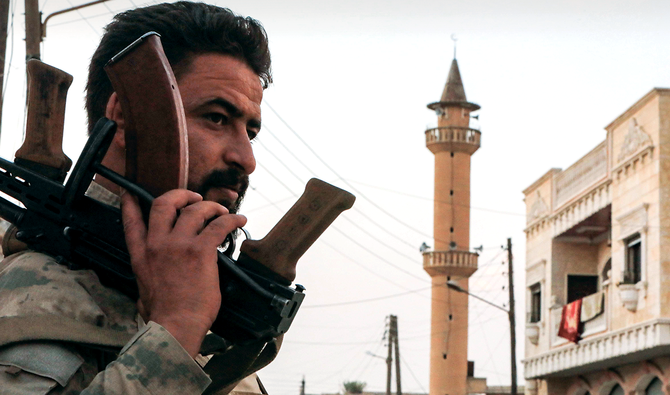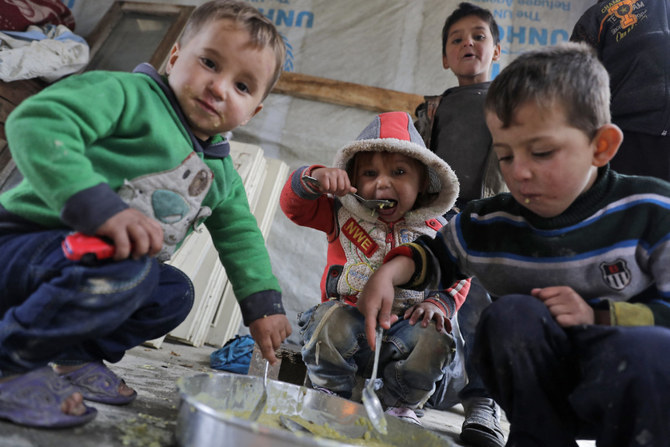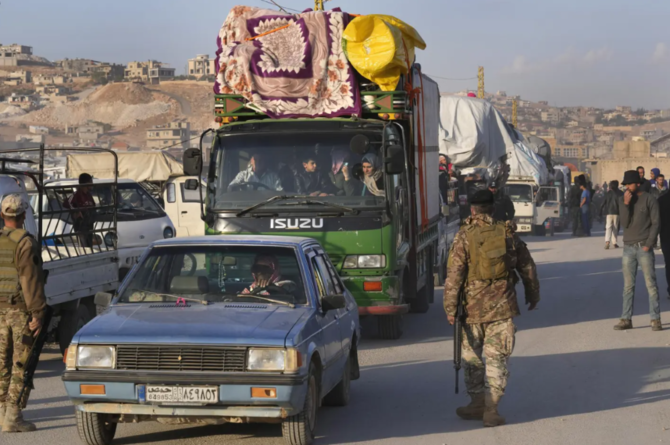Despite claims that the South Caucasus is the new flashpoint for Turkey and Russia, the recent military reinforcements in Syria hint that the balance in the province is still fragile and could provoke a regional crisis.
On Friday, a Turkish military convoy, with more than 25 armored vehicles and trucks carrying logistical materials, entered northwestern Idlib province to reinforce Turkish military points in the area.
How Turkey’s new military build-up will be considered by Moscow or whether it will lead to new concessions between the two countries, which back opposing sides in the Syrian civil war, are still a source of concern.
Navvar Saban, a military analyst at the Omran Center for Strategic Studies in Istanbul, thinks that this military reinforcement is likely to disturb Russia because the Kremlin expects Turkey to reduce its military presence in Syria, mainly in the area south of the M4 highway, which runs parallel to the Turkish-Syrian border.
“Russia began allowing the regime to mobilize some of its forces in the area south of the M4. There will not be a huge military confrontation, but there may be some artillery attacks from the regime on where Turkish forces are located,” he told Arab News.
The number of Turkish military vehicles in the area is estimated to have exceeded 9,750 in the past seven months.
Russia refused to conduct new joint patrols as long as there is instability in the area.
The latest joint military drill of Turkish and Russian troops recently was held in Idlib on Sept. 21.
Russian Foreign Minister Sergey Lavrov announced on Sept. 22 that the two countries will resume joint patrols in northern Syria when the situation stabilizes after the attacks by Hay’at Tahrir Al-Sham (HTS) targeting the Russian Hmeimim airbase.
Kyle Orton, a UK-based researcher on Syria, said Turkey’s military build-up in Idlib is intended as a message that Ankara will not surrender the remaining parts of the province.
“Turkey gave up more territory than expected and certainly more than many of its Syrian proxies were hoping. But the Turkish government does have a real red line: it needs a buffer area to keep the terrorists and refugees out of Turkey,” he said.
He sees this as a response from Turkey to recent signals from Damascus and Iran that another offensive is coming in Idlib, indicating that Ankara will resist any such action.
“The Russians are unlikely to be too alarmed by Turkey’s actions; Moscow is content to leave Turkey with Idlib, but Moscow cannot control the Assad and Iranian system, which has as its ultimate goal the reconquest of every inch of Syria,” he said.
In the meantime, the Turkish Presidency submitted a motion to parliament on Oct. 1 to extend its authority to launch cross-border military operations in northern Iraq and Syria for another year until Oct. 30, 2021. The motion underlines Turkey’s continued “security responsibilities” in northern Syria, east of the Euphrates River and in the Idlib province.
According to Ruwan Al-Rejoleh, an independent analyst in Washington, DC, there has always been talk about a “new operation” in Idlib, the last rebel bastion.
“All players have been anticipating it, preparing for it and promoting it every once in a while but the pandemic conditions postponed it. Russia has an interest in controlling all the M4 highway,” Al-Rejoleh said.
The regime forces and Russian fighter jets have recently increased their attacks on HTS and other terror groups in Idlib province with heavy bombardments.
The March agreement that was brokered between Russia and Turkey required the establishment of a security corridor around M4 highway, cleansing the area from radical elements as well as conducting joint patrols to serve a buffer between regime forces and rebels.
During a video conference on Saturday, President Recep Tayyip Erdogan said that “Turkey will wipe out terror zones in Syria if others fail to keep their promise.”
According to Al-Rejoleh, the problem remains in the defining who are the terrorist groups between Turkey and Russia.
“While Turkey sees the existence of armed separate entities operating in northeastern Syria, such as People’s Protection Units (YPG) which are connected to the outlawed Kurdistan Workers’ Party (PKK), as the immediate threat to its borders, Russia’s priority is to get rid of HTS, an internationally designated terrorist group, and other Syrian opposition armed groups that have connections to Turkey either through direct support or through Turkish intelligence channels,” she said.
On the Syrian front, Al-Rejoleh added, Turkey and Russia are likely to come to an agreement about possible concessions, where Turkey will “again” give up control of certain parts of Idlib in return for pressure-relief in other conflict zones or potentially the elimination of certain figures affiliated with PKK and a guarantee to prevent any new wave of refugees.






















